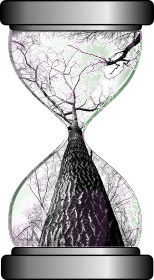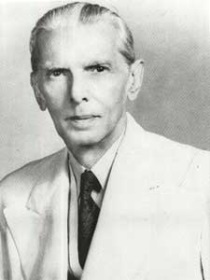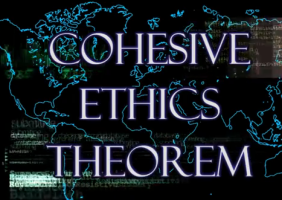1) The Original Conspiracy
The legend goes that human history is the record of an eternal battle between the Order of the Selfish Ones, and the Order of the Truth Seekers. Through the ages many Truth Seekers have embarked on the quest to unlock humanity’s true potential. But the Selfish Ones have slandered them, murdered them, and rewritten history, all to make humanity forget and stop believing.
– Systems, p.337
2) The Two Nation Theory
The Quran does not recognise the concept of majorities and minorities. It teaches that all humans are born equal on the basis of their having a common origin (4:1). It teaches that a true democracy rests not on the principle of simple majority rule (6:116) but rather on the principle of consensus (aiming for unanimity) by ‘mutual consultation’ (42:38). It also teaches that humans only differ by the type of deen [total civilisation: religion, politics, culture] that they follow; and that strictly speaking there are only two types of human society: one that lives by the universal spiritual principles of liberty, justice and solidarity, and the other that does not (5:56-7). This is the Quranic basis of the Two-Nation Theory. It has nothing to do with communalism, and everything to do with the active behaviour of a society that claims to be ‘good’. (2:148)
– Secular Jinnah & Pakistan, p.203 (Yes, I did consciously sneak the Cohesive Ethics Theorem into that passage at the time of writing the book.)
What we forgot
The above passages from my two books are basically talking about the came thing. I was recently having a conversation with a friend by email and something that came up there compelled me to write this post. These remarks from my email get straight to the point of what I want to share here:
“As an aside, you know the term “Original Conspiracy” of Systems is a corruption of the Christian [term] “Original Sin”, and that in any case the former [term] clears up the truth about the implications of the Adam story, aka the Two Nation Theory? And it also helps explain what Satan is – namely, the so-called dark side of free will, the selfish gene, human pride and arrogance, or intellect minus “love”? He is the original “other”, the bringer of the second choice, separation, and disagreement. … [The consensus/nationality principles] are timeless and have been taken up before … The Quran tells us that we have adopted them and forgotten them many times. “Satan has overcome them and made them forget the remembrance of Allah” (58:19). My “Conspiracy” is inspired from this idea of rewritten and forgotten history.”
The broad “implications of Adam’s story” (the Fall) mentioned in that email is what Systems is all about; and an individual historical case study of the Two Nation Theory is what SJ2 is all about. We are taught to believe that human potential has never been unlocked, that there has never been an ideal society – and that in fact it’s impossible anyway. Is this all really true, or have there just been enough slanders, murders and rewrites of history to make us forget?
“Some would say that what I have suggested is utopian, and moreover impossible. This is not so. As I see it, humanity cannot realise its true potential until we accept that an ideal society is not only possible, but absolutely mandatory.”
So says Prof. Hanif Omar in Systems. But does anyone share his belief in real life?
.
Words from a Truth Seeker
These are the words of MA Jinnah, founder of Pakistan, in Chittagong in 1948.
“It is natural for some to think only in terms of Government, but the sooner we realise and adjust ourselves to new forces, the sooner our mind’s eye is capable of piercing through the horizons to see the limitless possibilities of our State and our Nation, the better for Pakistan. Then and then alone it would be possible for each one of us to realise the great ideals of human progress, of social justice, of equality and of fraternity, which, on the one hand, constitute the basic causes of the birth of Pakistan and also the limitless possibilities of evolving an ideal social structure of our State. I reiterate most emphatically that Pakistan was made possible because of the danger of complete annihilation of the human soul in a society based on caste. Now that the soul is free to exist and to aspire, it must assert itself, galvanizing not only the State but also the Nation.”






 Meanwhile my novel was developing slowly. I had an idea for an experiment that would simulate history and test social systems, including an ‘ideal’ one. Computer simulations are commonly used for predicting weather patterns and observing changes in ecosystems. To my mind a social system simulation seemed perfectly feasible – more feasible, than say, trying to set up an experimental ideal society within an existing country where all sorts of practical obstacles would get in the way. A simulation would provide a controlled environment and in fact would be a more reliable test. In the novel, the Systems Experiment would prove that an ideal society was possible, and then the bad guys would go and ruin it all … as they always do. 🙂
Meanwhile my novel was developing slowly. I had an idea for an experiment that would simulate history and test social systems, including an ‘ideal’ one. Computer simulations are commonly used for predicting weather patterns and observing changes in ecosystems. To my mind a social system simulation seemed perfectly feasible – more feasible, than say, trying to set up an experimental ideal society within an existing country where all sorts of practical obstacles would get in the way. A simulation would provide a controlled environment and in fact would be a more reliable test. In the novel, the Systems Experiment would prove that an ideal society was possible, and then the bad guys would go and ruin it all … as they always do. 🙂


